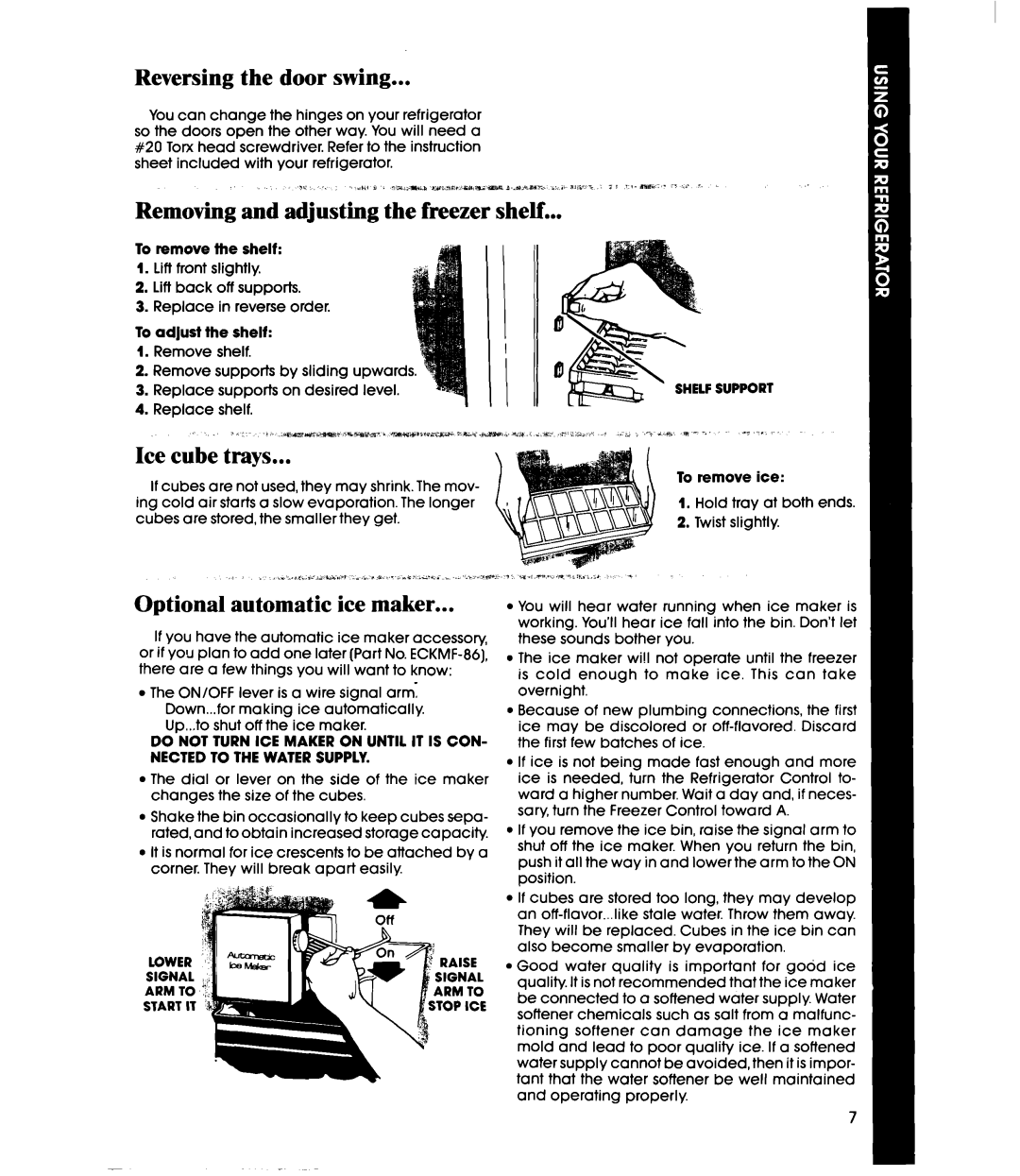
Reversing the door swing...
You can change the hinges on your refrigerator so the doors open the other way. You will need a #20 Torx head screwdriver. Refer to the instruction sheet included with your refrigerator.
To remove the shelf:
1.Lift front slightly.
2.Lift back off supports.
3.Replace in reverse order.
To adjust the shelf:
1.Remove shelf.
2.Remove supports by sliding upward
3. Replace | supports on desired level. | SHELFSUPPORT |
4. Replace | shelf. |
|
Ice cube trays...
If cubes are not used, they may shrink. The mov- ing cold air starts a slow evaporation. The longer cubes are stored, the smaller they get.
Optional automatic ice maker...
If you have the automatic ice maker accessory, or if you plan to add one later (Part No.
lThe ON/OFF lever is a wire signal arm. Down...for making ice automatically.
Up...to shut off the ice maker.
DO NOT TURN ICE MAKER ON UNTIL IT IS CON- NECTED TO THE WATER SUPPLY.
l The dial or lever on the side of the ice maker changes the size of the cubes.
l Shake the bin occasionally to keep cubes sepa- rated, and to obtain increased storage capacity.
lIt is normal for ice crescents to be attached by a corner. They will break apart easily.
LOWER
SIGNAL
ARM TO
START IT
l
l
l
l
l
l
l
To remove ice:
1.Hold tray at both ends.
2.Twist slightly.
You will hear water running when ice maker is working. You’ll hear ice fall into the bin. Don’t let these sounds bother you.
The ice maker wi!l not operate until the freezer is cold enough to make ice. This can take overnight.
Because of new plumbing connections, the first ice may be discolored or
If ice is not being made fast enough and more ice is needed, turn the Refrigerator Control to- ward a higher number. Wait a day and, if neces- sary, turn the Freezer Control toward A.
If you remove the ice bin, raise the signal arm to shut off the ice maker. When you return the bin, push it all the way in and lower the arm to the ON position.
If cubes are stored too long, they may develop an
Good water quality is important for good ice quality It is not recommended that the ice maker be connected to a softened water supply. Water softener chemicals such as salt from a malfunc- tioning softener can damage the ice maker mold and lead to poor quality ice. If a softened water supply cannot be avoided, then it is impor- tant that the water softener be well maintained and operating properly.
7
